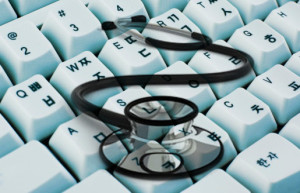
The field of medical language translation is highly regulated and specialized. Medical translators are required to know the languages they are translating to and from at an extremely high level, as well as, understanding medical terminology. To even be considered qualified to fill this position an individual must have a science, medical, or engineering degree, or equivalent. They also need to have actual work experience.
For example, they must have worked in a medical facility in some capacity or a relevant field of science, or engineering to be eligible for accreditation. This work experience has to be in an area OTHER than translation.
Additionally, the individual must be a native speaker of the language into which he/she translates the documents. As well, they must demonstrate they have at least 7 years in scientific or technical translation in both languages they are seeking accreditation for. These are very high standards and not a career position to be sought after lightly.
The Medical Language Translation Services Companies Obligations
The companies who hire medical translators and offer these types of services are under strict regulation as well. They must prove on a continual basis that the people they employ have the qualifications and accreditation to do this work correctly.
For example, most every document that leaves the translation offices has either a physical or electronic notarization and certification of translation accuracy on EACH page. This ensures that someone who is trained to do so, has checked the documents for errors.
Some clients who hire a translation company require that they provide certified translation of clinical trial documents. They must submit the translation of this clinical data to regulation authorities such as the FDA, to satisfy court orders and laws.
In addition, most every other country around the world requires that all medical translations be certified by medically trained translators. Medically translated documents are often needed between different countries.
A Heavily Supervised Role
Although, nearly all the translation work is performed on a computer and transmitted electronically, there are many aspects of the job that are very hands on. A healthcare or medical translator usually works in a healthcare facility and helps doctors and nurses communicate with patients, family members and other medical personnel.
As well, the translations will usually go through several stages of revision and editing before the documents are finalized and sent off. This means the translator must be near management and supervisors to ensure the oversight of their work.
Leave a Reply